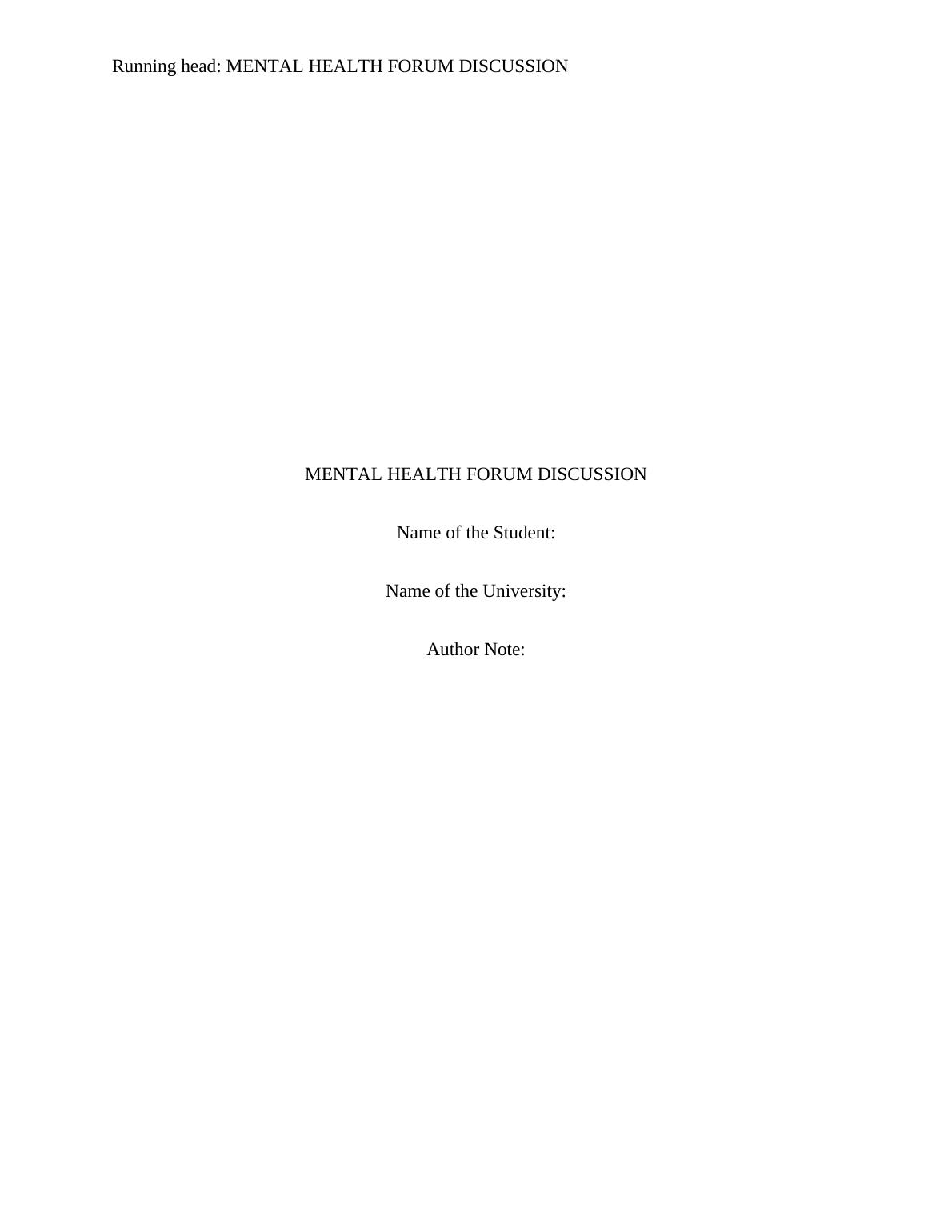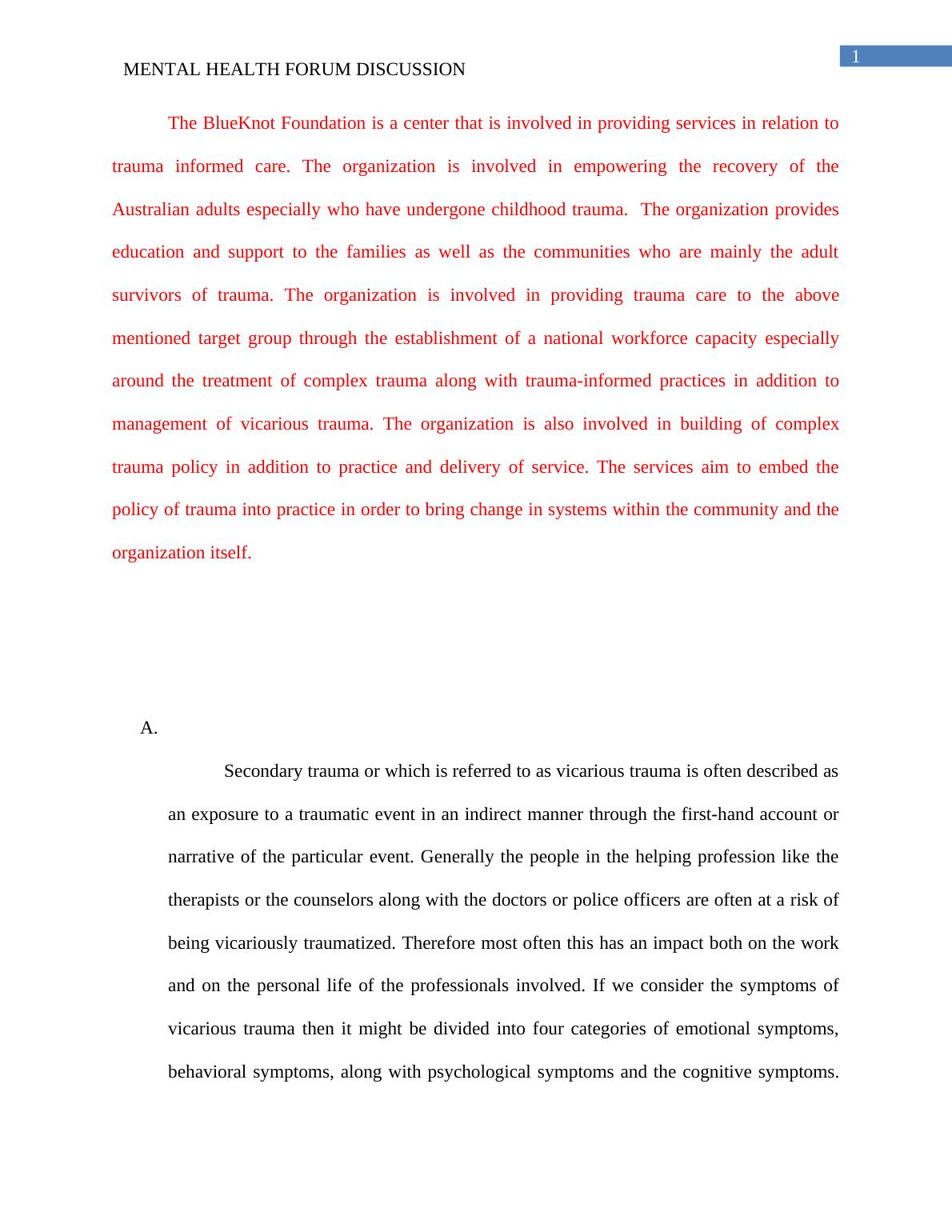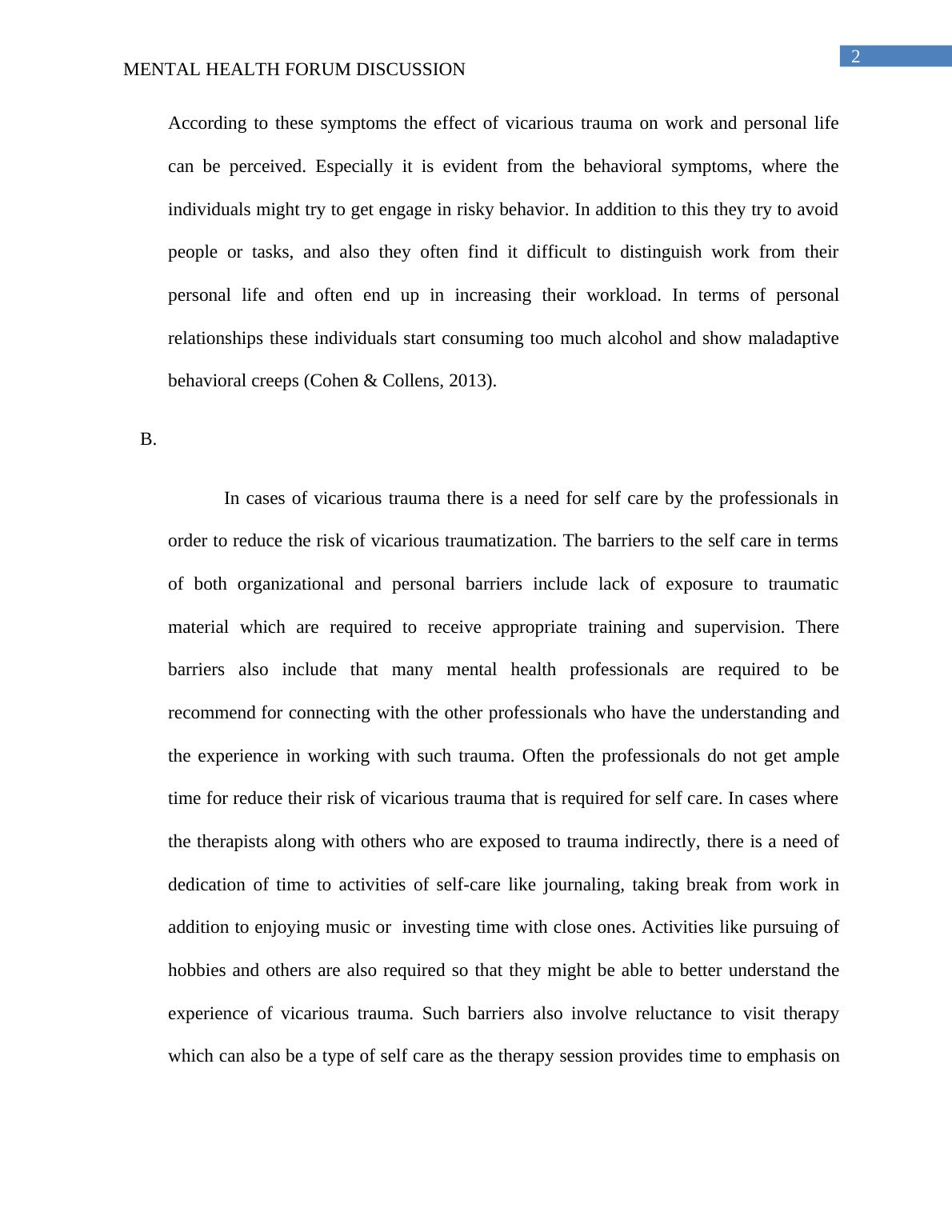Vicarious Trauma and Self-Care for Mental Health Professionals
6 Pages1186 Words329 Views
Added on 2023-06-06
About This Document
This article discusses vicarious trauma and self-care for mental health professionals. It explains the impact of vicarious trauma on work and personal life, barriers to self-care, and strategies to protect oneself from the effects of vicarious trauma. It also highlights policies that community services and health organizations can implement to support workers and prevent vicarious trauma.
Vicarious Trauma and Self-Care for Mental Health Professionals
Added on 2023-06-06
ShareRelated Documents
End of preview
Want to access all the pages? Upload your documents or become a member.
Mental Health | Post Trauma Stress Disorder
|8
|2362
|16
Evidence Based Nursing
|6
|1211
|229
Trauma-Informed Care: Understanding, Recognizing, and Responding to Trauma
|9
|827
|148
Post-Traumatic Stress Disorder in Adolescents: A Nursing Perspective
|7
|1738
|107
Cognitive Behavior Theory Assignment
|4
|677
|18
Post Traumatic Stress Disorder (PTSD)- PDF
|6
|1177
|52



